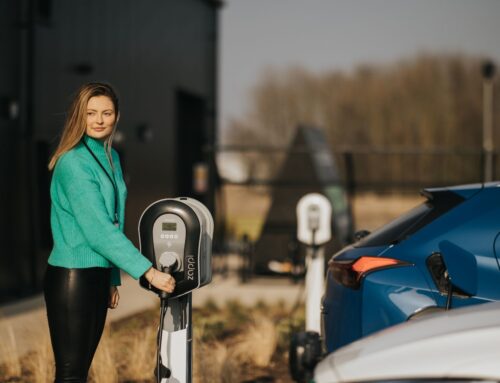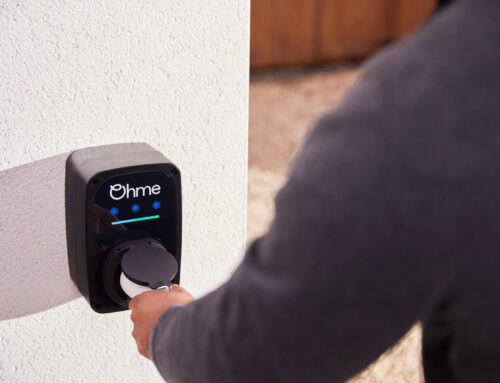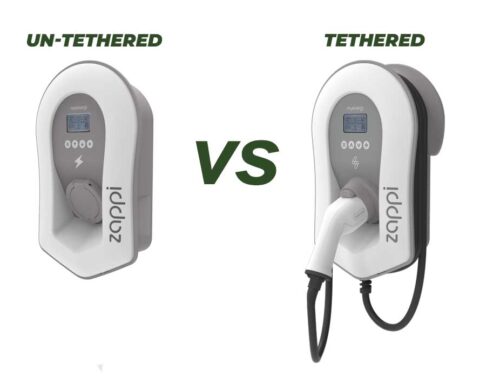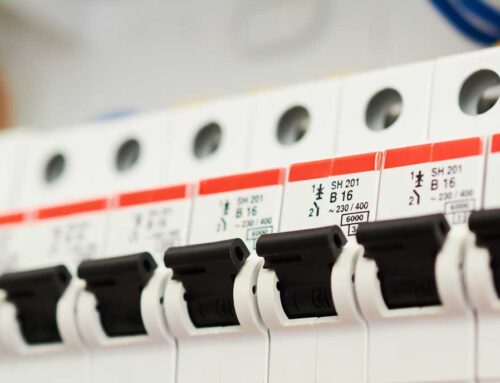Electric Car Charging – Perhaps you have finally taken the plunge and purchased an electric vehicle, or you might still be kicking the tyres and considering your options. Whatever stage you are at, understanding electric car charging and how it works can be crucial.
Electric vehicles use electric motors powered by batteries as a source of propulsion. Electric motors convert electrical energy into mechanical energy, and the battery will need charging regularly. With some vehicles, the battery might be at least partially recharged while you are driving around, especially with hybrids.
Electric car charging stations, either public (including Electric Car Charging Points For Business) or private, are required to charge electric vehicle batteries in EVs that need to be plugged in.
How do you charge an electric car in Ireland?
The first issue is whether you will be using a public/commercial or private electric car charging point. When installed at business locations, electric car chargers for office charging can take advantage of higher voltages, but they can be less convenient to use than using electric car charging at home.
The two main types of electric car chargers for home use are Level 1 and Level 2. Level 1 chargers use a lower current than Level 2 chargers and can therefore take longer to charge your vehicle. This is offset by the cost of the charger, and the options available might be limited by the electricity supply to your home.
The benefit of a home electric car charger and at-home electric car charging is that you can leave your vehicle on charge overnight, so it is ready to go first thing in the morning.
In comparison, a public charging point may only take half an hour to get you ready to drive again, but you have to wait at a specific location for this to happen. For example, if it is at a supermarket, you may find yourself browsing while you wait. It is great for passing the time but might cost you more in the long run – charging at home using a home car charger Ireland is cheaper as you only pay for the electricity you use without any added premium. In contrast, pay as you go electric car charging / commercial chargers will add a charging fee on top of the cost of the electricity you use. And you will have to justify any purchases you make in-store, too!
How long does it take to charge an electric car?
The time it takes to charge an electric car will depend on the vehicle you have, the charger you are using and the battery capacity.
A full charge from a Level 2 charger will take around four to eight hours, while a Level 1 charger will take between eight and 12 hours. With some electric vehicles, you might be able to use a standard household plug to get a partial charge – this is known as a trickle charger and can take anything from 12 to 24 hours.
Charging times will also depend on the battery’s state when you start charging – electric cars that are already partially charged will take less time to top up than electric cars starting from nearly flat batteries.
A public charger will give you a full charge much more quickly than a charger at home, but public chargers may not always be available when you need one. However, it is possible to get a full charge in 30 minutes with some commercial charging points.
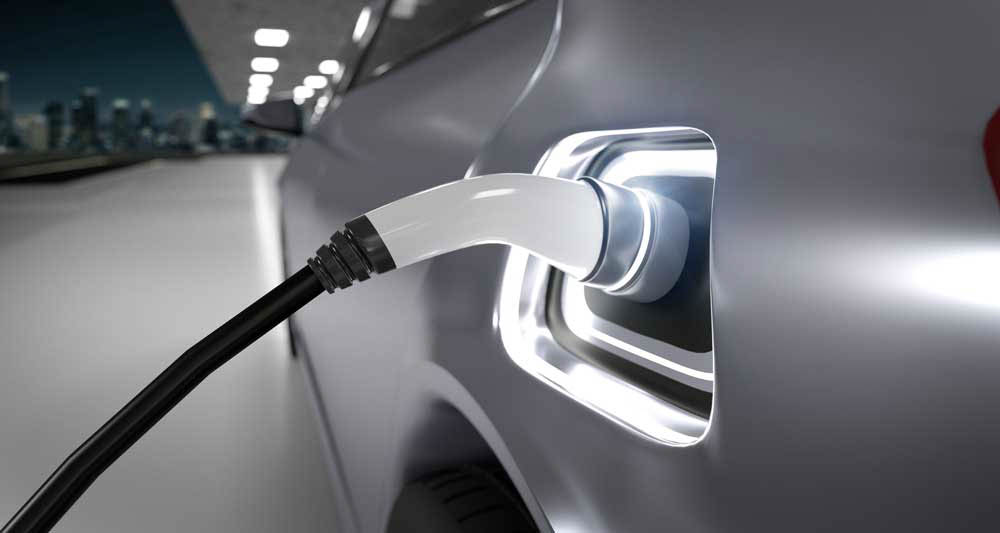
Electric Car Charger Ireland, Suite 1, Rear Unit 7, Church Place, Glenageary, Co. Dublin, A96 A9Y0, | Phone: +353 1 515 93 36 – DRIVING DIRECTIONS, EV Charger Website: www.electriccarcharger.ie
How do electric cars charge?
The most common way to charge an electric car is with a cable (EV Charging Cables Ireland). Where non-electric vehicles have a place to fill up with petrol or diesel, electric cars will either have a socket to plug in a cable or a retractable cable to pull out and connect to a charger.
Several different connectors are used for cars and cables, but most electric car charging points in Ireland will offer connectivity for a wide variety of vehicles.
Once your vehicle is connected to the charger, the electricity flows, and the battery recharges.
Can electric cars run on solar power?
Electric vehicles that run on electric motors cannot currently run directly off solar power, as the sun’s energy alone is not powerful enough to charge the battery. However, electric car charging points are available that will convert solar energy to reduce the amount you pay for the electricity required to charge your vehicle.
Do electric cars have manual gears?
No, electric cars do not have manual gears. Electric vehicles are powered by electric motors, which do not require gears to function. In fact, electric cars often have just one gear because the electric motor provides enough power to accelerate the car from a standstill without any need for additional gears.
This makes electric cars much simpler to drive than traditional petrol or diesel cars, and there is no need to worry about changing gears. It also means that you do not need to be concerned about changing gears to drive more efficiently and save battery life as the vehicle will self-optimize wherever possible.
Should I charge my electric car every night?
You do not need to charge your electric car every night, but it is often more convenient. You can set a timer for the charging process to start automatically overnight or use a smart home charger that enables electric car charging at the most convenient and efficient time. Either way, you will wake up to a full battery in the morning.
If you are worried about overcharging your electric car, don’t be – most electric vehicles will stop charging automatically when the battery is full.
Do electric cars lose charge when parked?
Electric cars do lose charge when parked, but it is not a significant amount. Electric cars that are not being driven can lose around 1% of their charge each day, so it is important to top up the battery regularly if you are not using the car for an extended period.
This is due to the technology used in batteries rather than anything else. While your car might have systems that need to keep ticking over while you are not using the vehicle, there is usually a separate battery that takes care of this and not the battery used for putting the car in motion.
How often do batteries in electric cars need to be replaced?
The battery in an electric car will usually last for a very long time. However, as with any battery, it will eventually need to be replaced – most electric car batteries will last for around 10 years or 150,000 miles. The technology is improving all the time, and a 20-year lifespan is on the horizon, along with hopes for a 1-million-mile battery.
The good news is that electric car batteries are designed to be recycled, so once yours reaches the end of its life, you can simply replace it with a new one without causing any negative environmental impact.
For further information and advice on electric car charging, electric car charger installation Ireland and/or to book a free site survey, contact the EV Charger experts at Electric Car Charger Ireland !
Ever wondered about Car Charger Installation Cost – How Much To Install An EV Charger ? Read our latest blog post for details


